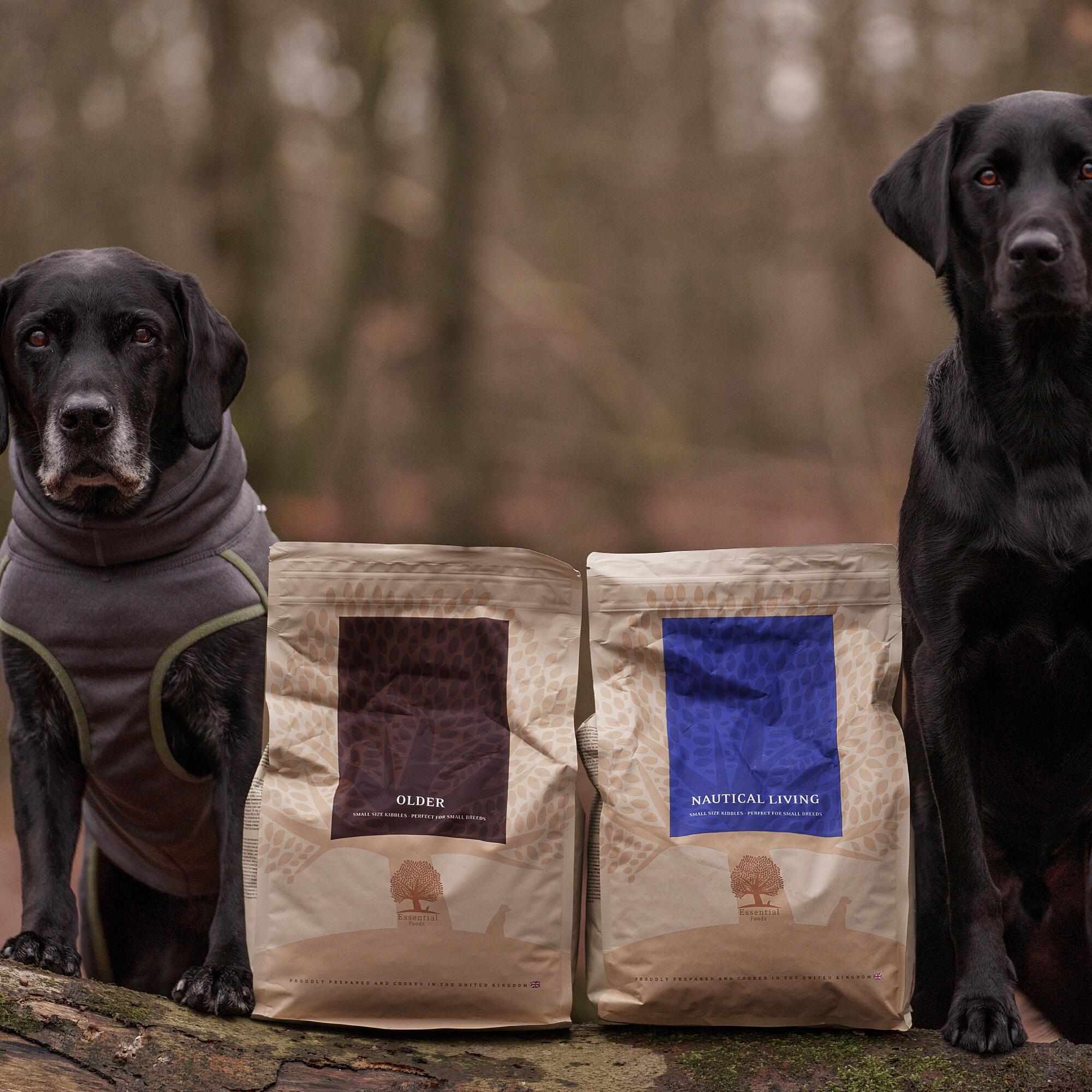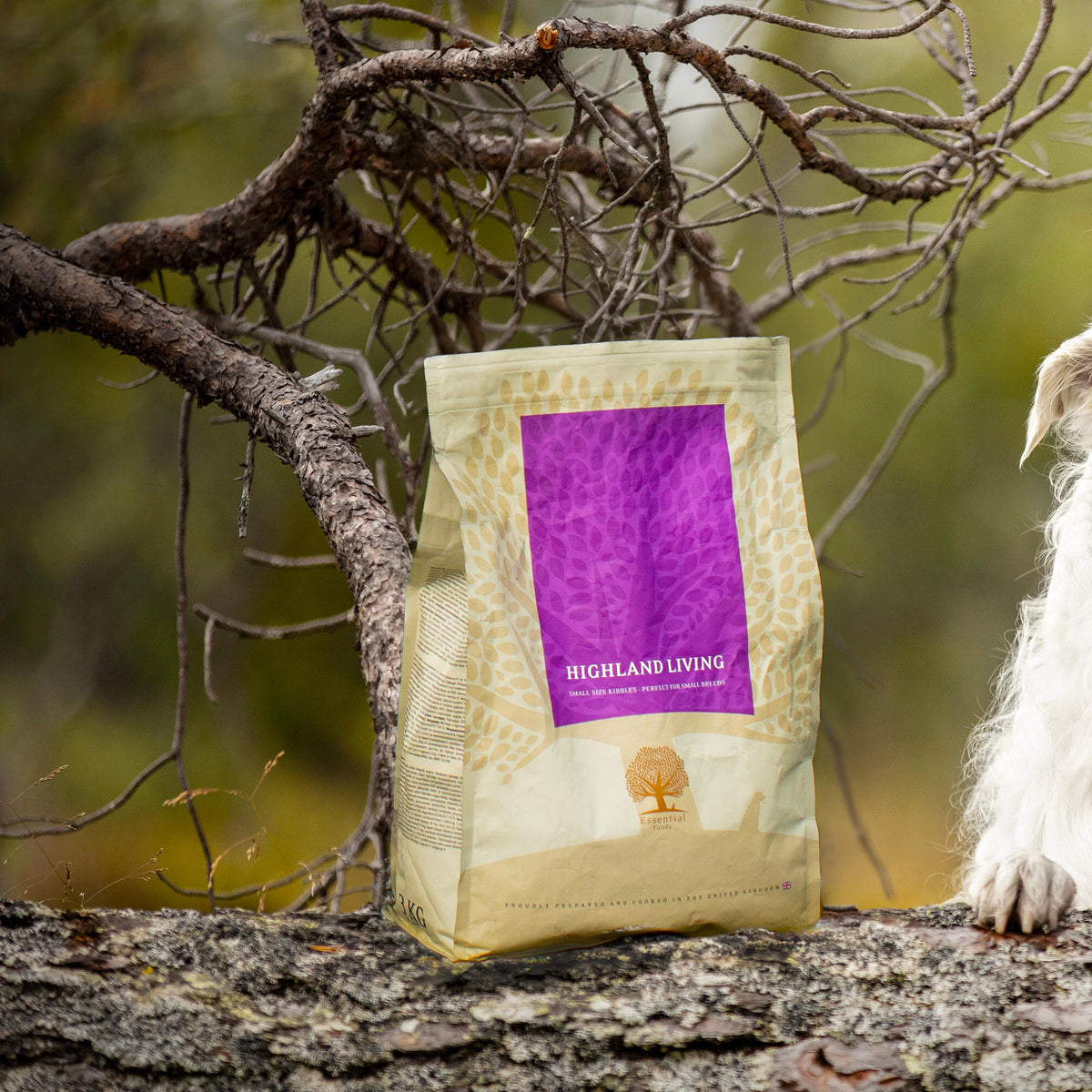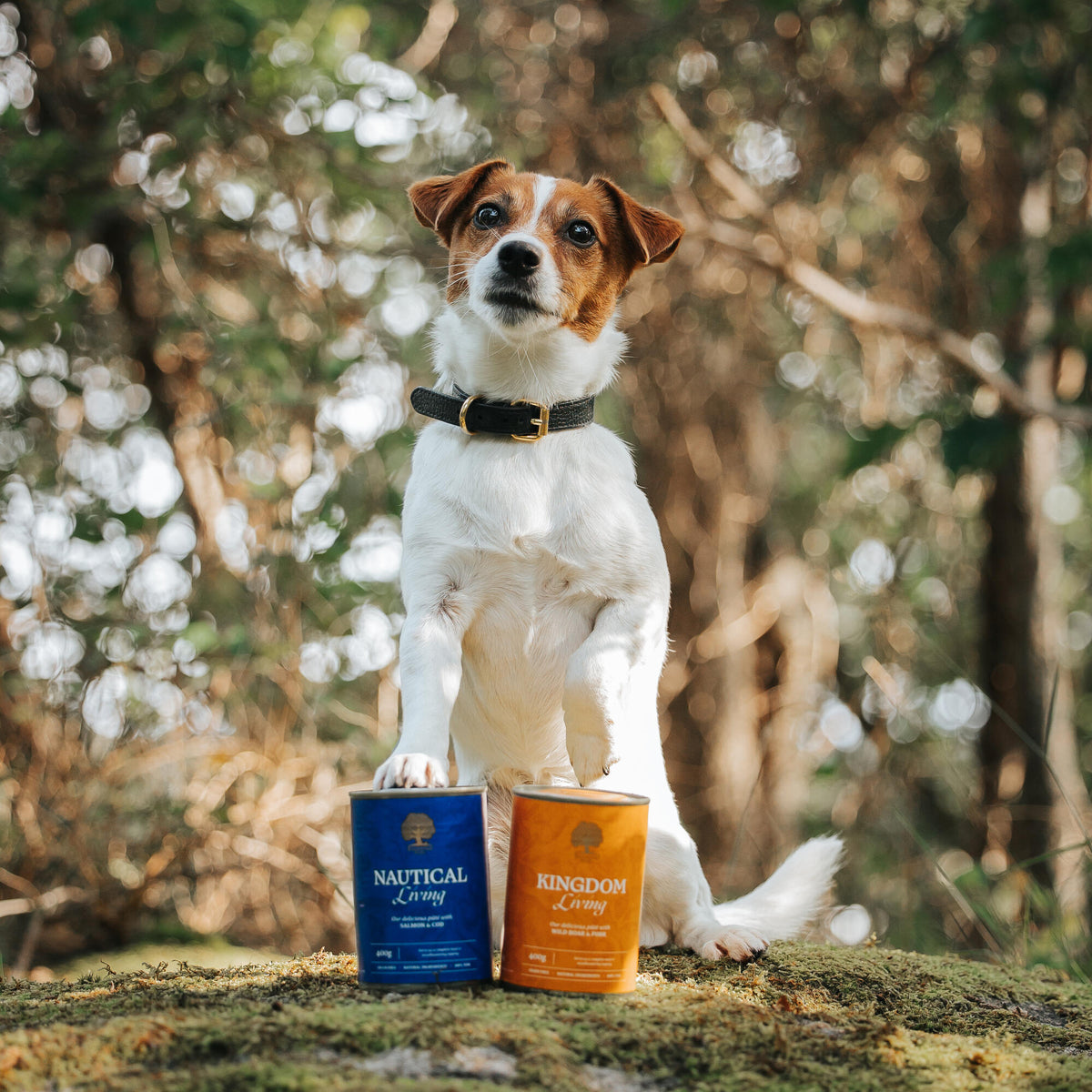Your Cart is Empty

Choosing the right food for your dog can feel like navigating a maze. With so many options on the market, it's crucial to find a diet that supports your dog's health, energy, and happiness. Let's dive into what makes dog food healthy and why Essential Dog Food might be the best choice for your dog.
Nutritional Needs of Puppies
Puppies are bundles of energy with specific nutritional needs. They require a diet rich in protein, fat, and essential vitamins and minerals to support their rapid growth and development. Look for puppy food that lists meat as the first ingredient and includes DHA for brain development.
Key Ingredients to Look For
High-quality puppy food should include:
What is Natural Dog Food?
Natural dog food is made from whole, unprocessed ingredients without artificial additives. It focuses on providing nutrition in its most natural form, mirroring what dogs might eat in the wild.
Health Advantages
Feeding your dog natural food can:
Why Choose Grain-Free?
Grain-free dog foodeliminates grains like wheat, corn, and soy, which some dogs find hard to digest. This type of diet can help manage food sensitivities and improve overall digestion.
Common Ingredients in Grain-Free Diets
Grain-free foods often use alternative sources like:
The Role of Protein in Dog Health
Protein is a building block for your dog's muscles, skin, and coat. It’s vital for growth, tissue repair, and immune function. A diet rich in protein ensures your dog stays strong and healthy.
Optimal Protein Sources
The best protein sources for dogs include:
Explanation of B.O.F
B.O.F stands for Behavioral Optimizing Foods. This principle focuses on maintaining stable blood sugar levels through balanced nutrition, which can significantly impact your dog's behavior and overall health.
Benefits for Your Dog
B.O.F can help:
Importance of Meat in Dog Diets
Dogs are natural carnivores, and their diet should reflect this. High meat content in dog food ensures they get the necessary proteins and fats they would naturally consume.
Comparing Meat Content in Dog Foods
When choosing dog food, compare the percentage of meat content. Foods with higher meat content are generally more nutritious and better suited to your dog's dietary needs.
Why Taste Matters
No matter how nutritious the food is, it’s useless if your dog won't eat it. Ensuring that the food is palatable encourages consistent eating habits and better nutrition.
Ensuring Your Dog Enjoys Their Food
Look for food with natural flavors and ingredients that dogs find appealing. Essential Dog Food, for example, offers a taste that dogs love, making mealtime a joy.
What to Avoid in Dog Food
Many commercial dog foods include fillers like corn and soy, which provide little nutritional value. Artificial additives and preservatives can also be harmful in the long run.
Long-Term Effects of Fillers
Fillers can lead to:
Steps for a Smooth Transition
Switching your dog’s diet should be gradual to avoid digestive upset. Start by mixing a small amount of the new food with the old, gradually increasing the new food over a week.
Monitoring Your Dog’s Response
Watch for changes in:
Testimonials from Dog Owners
Many dog owners have seen remarkable improvements in their pets' health after switching to Essential Dog Food. From shinier coats to more energetic playtimes, the benefits are clear.
Visible Health Improvements
Dogs on Essential Dog Food often show:
What to Look for in a Dog Food Brand
When selecting dog food, consider:
How Essential Dog Food Stands Out
Essential Dog Food prides itself on high-quality, natural ingredients and a commitment to canine health. Their unique BOF principle and high meat content make them a standout choice.
Investing in Your Dog’s Health
While premium dog food may cost more upfront, the investment pays off in reduced vet bills and a healthier, happier dog.
Long-Term Benefits of Quality Dog Food
Feeding your dog high-quality food can lead to:
Debunking Myths
There are many myths about dog food, such as the idea that all grains are bad or that high protein levels are harmful. It’s important to base your choices on scientific evidence and your dog’s specific needs.
Understanding Labels and Marketing
Marketing can be misleading. Focus on the ingredient list and nutritional content rather than the marketing claims.
In conclusion, the healthiest food for dogs combines high-quality ingredients, balanced nutrition, and excellent palatability. Essential Dog Food meets all these criteria with its grain-free, high-protein, high-meat content meals designed to stabilize blood sugar and optimize your dog's health. By choosing Essential Dog Food, you’re investing in a healthier, happier life for your furry friend.
What makes puppy food different from adult dog food? Puppy food is formulated with higher levels of protein, fat, and specific nutrients like DHA to support growth and development.
Are grain-free diets suitable for all dogs? While many dogs thrive on grain-free diets, it’s essential to consult with your vet to determine the best diet for your dog's unique needs.
How do I know if my dog needs a high-protein diet? Active dogs, puppies, and working breeds often require higher protein levels. Your vet can help determine the right balance.
What is the B.O.F principle? B.O.F (Behavioral Optimizing Foods) focuses on maintaining stable blood sugar levels to support optimal behavior and health.
How can I ensure my dog likes their new food? Introduce the new food gradually and look for products with high palatability, like Essential Dog Food, which dogs love for its natural flavors.


